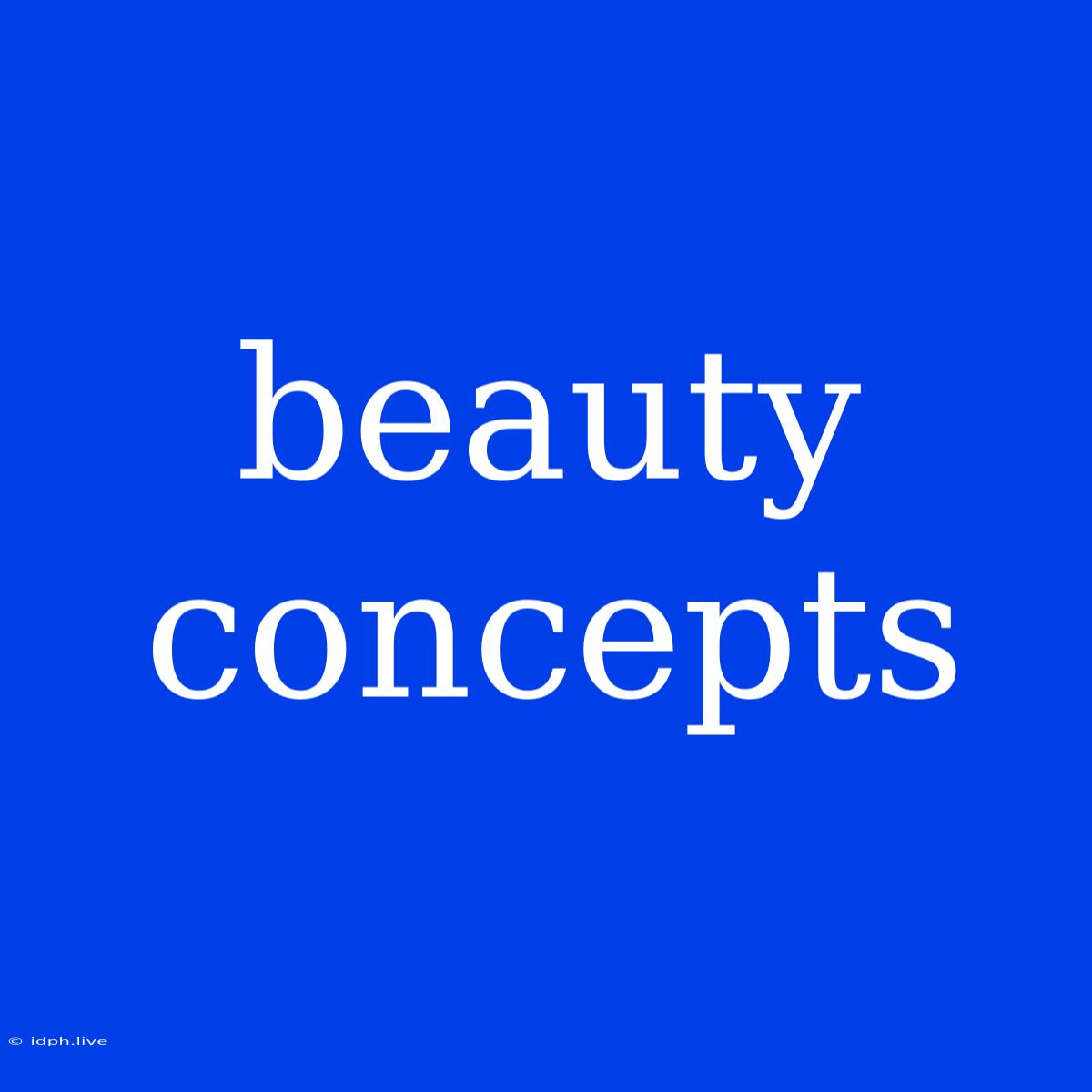Beauty Concepts: Exploring the Ever-Evolving Definition of Beauty
Beauty is a concept that has captivated humanity for centuries. It has inspired art, sparked debates, and influenced countless decisions. But what exactly constitutes beauty? Is it a universal standard or a subjective experience?
This article explores the fascinating world of beauty concepts, delving into their historical evolution, cultural influences, and modern interpretations.
A Shifting Landscape: The Evolution of Beauty Concepts
Throughout history, beauty standards have undergone significant transformations. In ancient Greece, ideal beauty was associated with physical perfection, symmetry, and proportion. The Renaissance celebrated a more idealized, almost angelic beauty, with emphasis on grace and refinement.
In the 20th century, the rise of mass media and celebrity culture dramatically reshaped beauty ideals. The "flawless" look became the norm, influenced by airbrushed images and unattainable standards.
Modern beauty trends embrace a more diverse and inclusive approach. The focus is shifting towards celebrating individual uniqueness, embracing imperfections, and promoting body positivity.
Cultural Influences: A Tapestry of Beauty Standards
Beauty concepts are deeply intertwined with culture. Different societies have distinct notions of beauty, reflecting their values, beliefs, and aesthetic preferences.
For example:
- In many African cultures, elaborate hairstyles and body adornments are considered beautiful and signify cultural heritage.
- In East Asian countries, pale skin is often associated with beauty and social status.
- In the West, tanned skin is frequently seen as a sign of health and attractiveness.
This cultural diversity underscores the fact that beauty is not a universal construct but rather a complex and multifaceted concept shaped by societal norms and individual perspectives.
Beyond the Physical: Exploring Inner Beauty
While physical beauty is often a dominant theme, the concept of inner beauty is equally significant. It encompasses qualities such as kindness, intelligence, compassion, and strength of character.
Inner beauty is recognized as a profound and enduring form of attractiveness. It reflects a person's values, principles, and the way they interact with the world.
The Beauty Industry: Shaping and Influencing Perceptions
The beauty industry plays a significant role in shaping and influencing beauty concepts. Through advertising, marketing, and product development, it promotes certain beauty ideals and perpetuates specific notions of attractiveness.
However, the industry is increasingly facing criticism for promoting unrealistic standards and contributing to body image issues. The rise of body positivity movements and calls for greater diversity and inclusivity within the industry are challenging traditional beauty norms and advocating for a more empowering and authentic approach to beauty.
Conclusion: Embracing the Beauty of Diversity
Beauty is a multifaceted and dynamic concept that has evolved over time and varies across cultures. While physical appearance plays a role, it's crucial to remember that beauty is not solely defined by external standards.
True beauty embraces individuality, celebrates uniqueness, and recognizes the value of both inner and outer qualities. It's a journey of self-discovery and acceptance, where each person's unique beauty is cherished and celebrated.

